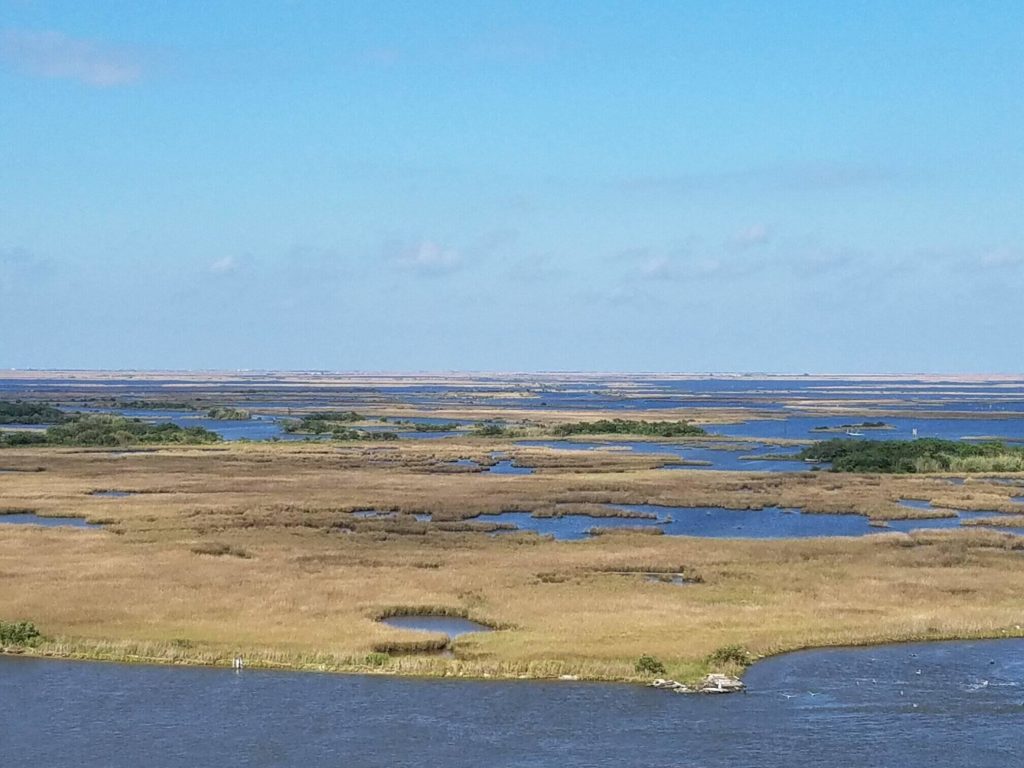The Coastal Barrier Resource System includes 3.5 million acres of barrier islands, beaches, and wetlands along the Gulf of Mexico, Atlantic Ocean, Great Lakes, Puerto Rico, and the U.S. Virgin Islands. These areas provide important habitat for wildlife, including fish and shellfish that support the nation’s multi-billion-dollar fishing industry. Undeveloped coastal areas also act like nature’s “speed bumps,” absorbing impacts from storms and hurricanes and helping shield upland communities from damage.
The Coastal Barrier Resources Act (CBRA) was enacted in 1982 to keep those storm-prone and dynamic coastal barrier ecosystems intact to provide protection for people and conserve habitat for wildlife. It does this by removing federal incentives for development. Louisiana has 21 Coastal Barrier Resource Units totaling over 640,000 acres across 300 miles of shoreline.
A strong bill that would expand and strengthen the CBRA passed the Senate Environment and Public Works Committee by a unanimous voice vote. The next step is passage by the full Senate, which could occur later this year or early next. The Senate could vote on the bill by itself or as part of a package of other legislation. LWF joined groups in a joint letter to the Senate Environment and Public Works Committee in December 2022.
A similar bill in the House, HR 5490 – the Bolstering Ecosystems Against Coastal Harm Act (BEACH Act) – which would make some improvements to the CBRA, was introduced in September 2023 and received a subcommittee hearing. The bill is strong in some areas but urgently needs improvement in others.
LWF was among the 30 groups of stakeholders – including organizations representing fiscal conservatives, taxpayers, insurance industry leaders, state officials, environmentalists, scientific institutions, and outdoor recreationists – in a recent letter penned to Representatives Bentz, Kiggans, and Huffman, chairman, vice-chair, and ranking member, respectively, on the U.S. House Natural Resources Subcommittee on Water, Wildlife, and Fisheries. Representative Kiggans introduced the bill in September.
The letter urged the representatives to add two key provisions to HR 5490. These provisions would help save taxpayer dollars, safeguard important economies, protect coastal communities from flooding and hurricane damage, and conserve habitat that is vital to fish, shellfish, and other wildlife.
While HR 5490 would include the same expansion of the CBRA that is included in the Senate bill by adding more than 290,000 acres to it (the largest expansion of the CBRA since 1990), it does not include two crucial provisions that are included in the Senate bill:
- HR 5490 does not include the 2-year pilot project to develop criteria for extending CBRA upland to marsh migration corridors and other habitat areas. The pilot project is crucial for helping to protect areas that could provide habitat as sea levels rise and climate change impacts increase.
- While HR 5490 expands the definition of a coastal barrier to include bluffs, it does not include areas subject to sea level rise and climate impacts in the expanded definition.
The next step is a vote by the full committee, which could occur by the end of this year. The bill would then be ready to be acted on by the full House.
LWF continues to support expansion of the Coastal Barrier Resources System to increase protection not only for Louisiana communities but other important coastal areas across the nation.
Read the joint letter here.


